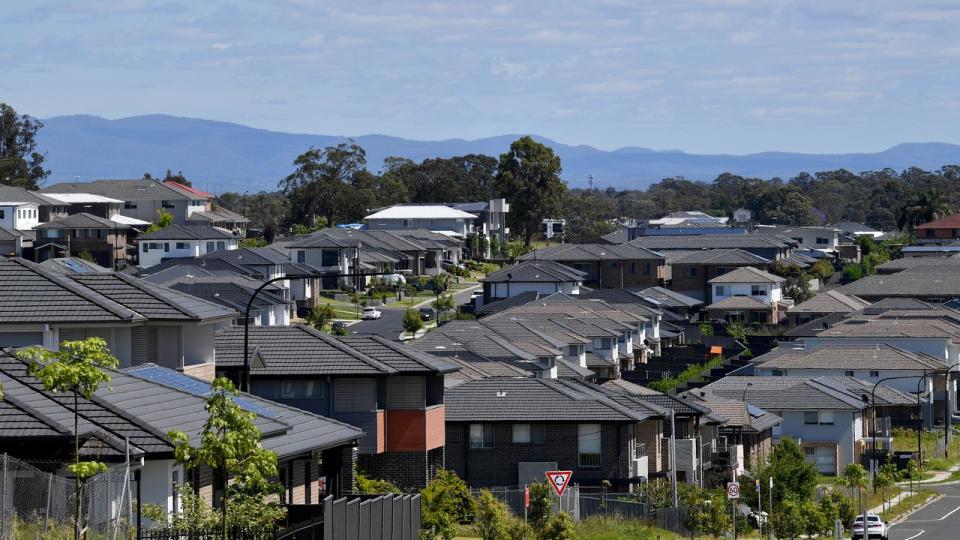Housing crisis to 'get worse before it gets better'
Australia's housing crisis is expected to get worse before it gets better and the federal government is facing growing pressure to do more to fix it in the May budget.
Deloitte Access Economics partner Stephen Smith said the nation had not been building enough homes to keep pace with population growth, and new dwelling starts were particularly sluggish due to builders working through a backlog of half-finished homes.
"The cost of land, materials and labour will stay at higher levels, while recent insolvency rates suggest builders will need bigger profit margins if they are to deliver the significant lift in dwellings that governments and the community are crying out for," he said in the latest business outlook report.
Mr Smith warned the correcting the housing crisis would take years and "will get quite a lot worse before it gets better".
The economist was also unsure the nation's overarching goal of building 1.2 million homes starting from mid-2024 would be be met, as highlighted in recent industry forecasts.
The troubling state of the housing market has home-building industry groups, social welfare advocates and federal independents crying out for more action before the May 14 budget.
The likes of the Master Builders Association and the Property Council have teamed up with the Community Housing Industry Association, Australian Council of Social Services and housing affordability advocates to call on the government to double the size of its housing future fund.

In a letter to the prime minister, the housing alliance said upping the size of the fund to $20 billion would help the government reach its home building target.
Returns from the fund are used to publicly subsidise social and affordable housing developments, with the existing $10 billion fund expected to help deliver 30,000 dwellings in five years.
Anglicare Australia wants higher social security payments, more social housing built, and reform tax breaks for investors following the damning finding of its latest rental affordability snapshot.
It found rental affordability was "the worst it had ever been", with just 13.4 per cent of rental listings deemed affordable for a family of four with two parents on the minimum wage
Key independent senators David Pocock and Jacqui Lambie have been pushing for investor tax reform.
Modelling by the Parliamentary Budget Office suggests modest changes could save the federal budget $16 billion in a decade, which they say could be used to build more social and affordable homes.
Housing policy cuts across all levels of government and the Commonwealth has become increasingly active in the space.
It has introduced the housing future fund, is working on a national housing and homelessness plan, and is trying to legislate its help-to-buy shared equity scheme
Housing Minister Julie Collins said the government's reform agenda was ambitious.
"More help for homebuyers, more help for renters and more help for Australians needing a safe place for the night," she said.
WHAT PEOPLE ARE ASKING FOR
* The Property Council of Australia, National Shelter, the Housing Industry Association, the Community Housing Industry Association, ACOSS, Master Builders Australia, and Homelessness Australia want the Housing Australia Future Fund doubled to $20 billion in the budget. In an open letter to the prime minister, they also call for the draft national housing and homelessness plan to be published for further industry engagement.
* Anglicare Australia's latest Rental Affordability Snapshot found the housing crisis is the "worst it has ever been". The social welfare group calls for the government to build more homes, reform the tax system and lift social security payments.
* Independent senators David Pocock and Jacqui Lambie want the government to consider reforming investor tax breaks in a way that protects existing investments. Parliamentary Budget Office modelling suggests modest reform could save the federal budget $16 billion in a decade. Under the five scenarios modelled, existing property investors would be at least partially exempt from the proposed capital gains tax discount and negative gearing changes.


